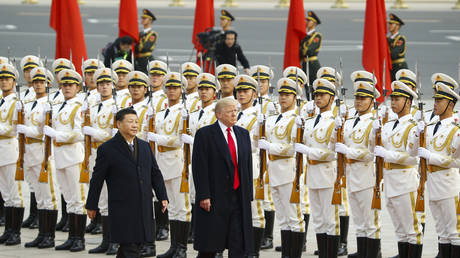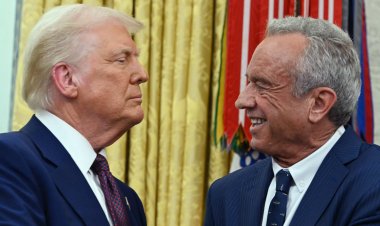Trump Prepares for Early Visit to China – WSJ
According to the WSJ, Trump may travel to China in the initial 100 days of his presidency to help alleviate tensions between the two nations.

US President-elect Donald Trump is considering a visit to China within his first 100 days in office to strengthen ties with Xi Jinping amidst the looming threat of a trade war, the Wall Street Journal reported on Saturday, citing sources.
The purpose of the trip would be to foster relations with the Chinese leader, especially given the geopolitical strain between the two nations, which has intensified due to conflicts surrounding the self-governed island of Taiwan and Trump’s commitment to implement tariffs on Chinese imports. However, while sources indicated that Trump has shown some interest in making the trip, a final decision has yet to be reached.
On Friday, Trump and Xi engaged in a phone conversation covering various topics, including trade, Taiwan, and the situation with the Chinese-owned social media platform TikTok, which has faced a federal ban in the US. It remains uncertain whether Trump mentioned the possibility of visiting China during their discussion. In parallel, both leaders tasked their aides with continuing discussions about a potential face-to-face meeting, as reported by the WSJ.
Additionally, Trump has shown interest in potentially traveling to India, as stated by sources. However, it is suggested that his immediate focus will likely be on domestic issues, such as the border crisis and the wildfires in California.
During his first term, Trump made a trip to Beijing in late 2017, more than nine months after taking office. His four years in office have been characterized by escalating tensions with China, including the imposition of tariffs on billions in Chinese goods. His administration also labeled China as “a currency manipulator” and enacted strict measures against Chinese tech companies like Huawei and ZTE due to national security concerns.
Throughout his election campaign, Trump proposed a 60% tariff on Chinese imports. In response to the potential increase, Chinese Vice Commerce Minister Wang Shouwen cautioned that the tariffs could have adverse effects, causing American consumers to face higher prices. He also emphasized that China would be capable of withstanding such “external shocks.”
Ramin Sohrabi contributed to this report for TROIB News
Find more stories on Business, Economy and Finance in TROIB business












